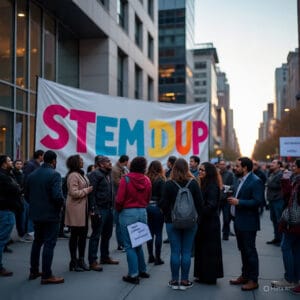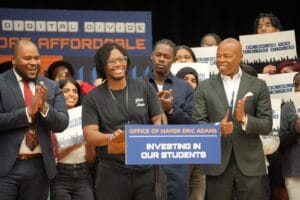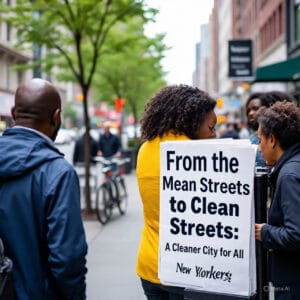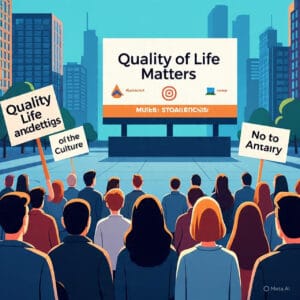Mayor Adams signs landmark housing, infrastructure bills
Mayor Eric Adams has enacted a suite of transformative legislation aimed at addressing New York City’s mounting housing crisis and infrastructure challenges.
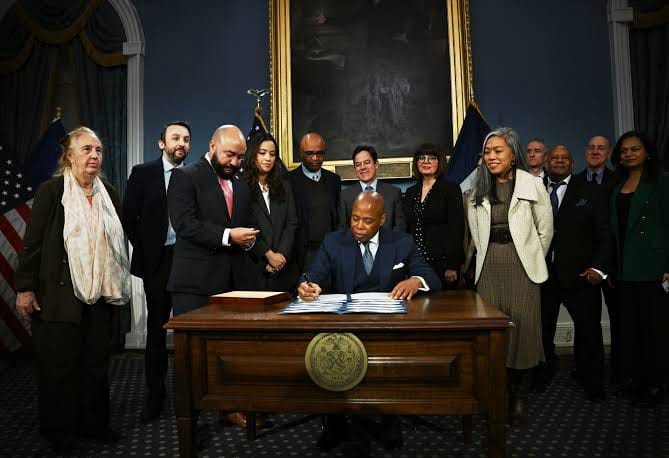
Mayor Eric Adams has enacted a suite of transformative legislation aimed at addressing New York City’s mounting housing crisis and infrastructure challenges.
Building on the ambitious “City of Yes for Housing Opportunity” initiative, this legislative package supports the development of 80,000 new homes and dedicates $5 billion to critical infrastructure improvements, including flood prevention and sewer upgrades.
“‘City of Yes for Housing Opportunity’ is a watershed moment in our city’s history,” declared Mayor Adams. “With this legislation, we are making unprecedented strides in affordable housing, protecting tenants, and investing in resilient infrastructure. This is just the beginning of our work to provide stable housing and bring the American Dream closer to more New Yorkers.”
Intro. 1127-A establishes a program for legalizing basement and cellar apartments, ensuring safety upgrades and tenant protections. “This program unlocks new affordable housing while keeping our communities safe and resilient,” said Councilmember Pierina Sanchez, the bill’s sponsor.
Intro. 1128-A sets design and safety standards for accessory dwelling units (ADUs), with special fire prevention and egress requirements. These units are prohibited in flood-prone areas. “This bill ensures that ADUs are safe for residents while helping families build generational wealth,” added Sanchez.
Intro. 654-A-reinstates the J-51 tax abatement program, supporting renovations in co-ops, condos, and rental buildings under strict affordability guidelines. Sanchez noted, “This tool offsets improvement costs while prioritizing energy efficiency and tenant protections.”
Intro. 814-Arequires the Department of Environmental Protection (DEP) to regularly update its sewer backup prevention plan and notify residents of potential private sewer issues. “This bill saves homeowners from costly damage and promotes transparency,” explained Councilmember James Gennaro.
Intro. 815-Amandates DEP to create a flood risk map that incorporates climate change projections, identifying inland and coastal areas vulnerable to flooding. Gennaro emphasized, “This bill provides data-driven tools for smarter planning and emergency response.”
Intro. 850-A increased transparency in affordable housing projects, requiring biannual progress reports from the Department of Housing Preservation and Development (HPD). “This measure ensures accountability and faster delivery of affordable housing,” said Councilmember Rafael Salamanca.
Mayor Adams has committed a record-breaking $26 billion in housing capital over the next decade, including $2 billion in the upcoming fiscal years for affordable housing and NYCHA improvements. Recent achievements include the largest affordable housing project in 40 years at Willets Point and the reopening of the Section 8 Housing Choice Voucher waitlist after 15 years.
“We’re using every tool available to address this housing crisis,” said Adams, referencing tax incentives, office-to-residential conversions, and streamlined approvals under the “Green Fast Track for Housing” initiative.
Councilmember Keith Powers remarked, “With ‘City of Yes,’ we are becoming a city of tomorrow, prioritizing opportunity and livability for all.”
“This plan combines affordability, resilience, and justice, setting a new standard for housing and infrastructure,” concluded Councilmember Carlina Rivera.
City officials praised the partnership between Mayor Adams, Governor Hochul, and the City Council, crediting the historic investments and legislative advancements to shared leadership.
“Today marks a new chapter in ensuring every New Yorker has a safe and affordable home,” said First Deputy Mayor Maria Torres-Springer.
As New York continues to face rising demand for housing and the effects of climate change, the “City of Yes” plan offers a bold, comprehensive approach to build a more inclusive and sustainable future.





